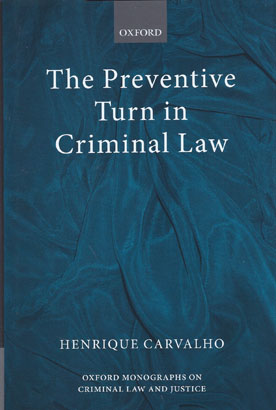
Through a theoretical examination of the preventive turn in criminal law and justice which has gained momentum in Anglo-American criminal justice systems since the late-twentieth century.
The Preventive Turn in Criminal Law demonstrates how recent transformations in criminal law and justice are intrinsically related to and embedded in the way liberal society and liberal law have been imagined, developed, and conditioned by its social, political, and historical context.
Henrique Carvalho identifies a tension between the idea of punishment as an expression of individual justice, and prevention as a manifestation of the need for security and the promotion of welfare. Tracing this tension back to an intrinsic ambivalence within the modern conception of individual liberty, which is both repressed and preserved by liberal conceptions of responsibility and punishment, Carvalho proves that as long as this ambivalence remains unexamined, liberal law has the potential to both promote and undermine individual justice.
Engaging with the dominant contemporary literature on criminal law, prevention, risk, security, and criminalisation, this volume deploys a theoretical perspective developed through a critical analysis of both classical and contemporary works of social and political theory.
The book reveals that the pervasiveness of prevention in 21st century criminal justice systems represents not only the consequence of new and unprecedented features of contemporary politics and society, but also the manifestation of essential aspects of the liberal legal and political tradition.